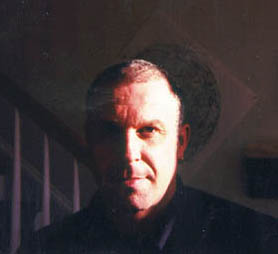
12 November 2010
by Justice Putnam
Black Kos Poetry Editor
In the Dogon cosmology, the Andoumboulou are a failed, earlier form of Human Being, who live underground inhabiting holes in the Earth. The voice of the Andoumboulou is merely their breath; it is the music of the wind. Nathaniel Mackey takes this breath to the text; a reification of language to body, the ink on the page being as real as the skin that chatters for the Andoumboulou. He chronicles the journey of that voice, that music of the wind, as it courses over the land and time.
There is an explosion of stammers in the Andoumboulou's flawed world of abortive language. Though imperfect and flawed, meaning emerges in the errors. That meaning is beyond words; it is lost in human utterance; it is something to be determined as but a whisper from a human existence we can only speculate about, that we can only feel. A feeling like the wind on our cheeks; and grains of sand blown from our hands.
Song of the Andoumboulou: 55
Carnival morning they
were Greeks in Brazil,
Africans in Greek
disguise. Said of herself
she
was born in a house in
heaven. He said he was
born in the house next
door... They were in hell.
In Brazil they were
lovebait.
To abide by hearing was
what love was... To
love was to hear without
looking. Sound was the
beloved’s
mummy cloth... All to say,
said the exegete, love in
hell was a voice, to be spoken
to from behind, not be able
to turn and look... It
wasn’t Greece where they
were,
nor was it Benin... Carnival
morning in made-up hell, bodies
bathed in loquat light, would-be
song’s all the more would-be
title, “Sound and Cerement,”
voice
wound in bandages
raveling
lapse
Up all night, slept well
past noon. Awoke restless
having dreamt she awoke on
Lone Coast, wondering
afterwards what it came
to,
glimpsed interstice,
crevice,
crack... Saw her
dead mother and brother
pull up in a car, her brother
at the wheel not having driven
while alive, newly taught
by
death it appeared. A fancy car,
bigger
than any her mother had had while
alive, she too better off it
appeared... A wishful read, “it
appeared” notwithstanding, the
exegete impossibly benign. Dreamt
a dream
of dream’s end, anxious, unannounced,
Eronel’s nevermore namesake, Monk’s
anagrammatic Lenore... That the
dead return in luxury cars made
us
weep, pathetic its tin elegance,
pitiable,
sweet read misread,
would-be
sweet
-- Nathaniel Mackey





